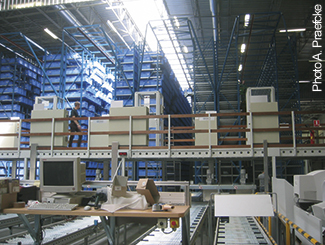 by Andrea Bardi26
Giugno
2014
by Andrea Bardi26
Giugno
2014
European and regional policies for logistics development
2014-2020 European plan: new opportunities for ceramic tile manufacturers
Logistics and transportation of goods are an important part of the political agenda aimed at the promotion, enhancement and innovation of European economies, in particular small and medium enterprises (SMEs).
Many are the new policies currently being developped, starting from the 2014-2020 European plan and the Regional Operational Programme (ROP) whose proposal was adopted during public consultation by the Regional Council of Emilia Romagna on April 28th 2014. As to Horizon 2020 (the European Framework Programme for Research and Technological Development that provides an estimated €70 billion of funding between 2014 and 2020) projects have recently been selected for the planning phase.
Emilia-Romagna has distinguished itself over the years for a full use of European funding due to its local economic operators, experts in identifying both public and private funding and any financial opportunity that might arise from such funding.
As to regional transportation it must be said that while interports, the port of Ravenna, and logistic development hubs together with the major sector players are active, logistics generally remains frail and little internationalised.
Since logistics has been able to meet local companies’ demand for flexibility but not their need for innovation, international logistics partners have steadily rooted on our territory. Which shows the need for enhanced and better integrated logistics services.
Through the regional logistics bases foreign partners have access to a global network enabling import/export of final, medium and consumers’ goods. This hasn’t improved local logistics. In fact regional logistics and transportation often offer a continual and high level of service lacking alas both innovation and planning.
As a result we lack medium high level services and know-how which both industries and logistics would benefit from.
Demand doesn’t therefore meet opportunities offered by an innovative and integrated logistics service while offer is in the hands of foreign providers, keen on business opportunities but not so much on having excellent resources.
Yet some sign of a near upgrade can be seen in the region: companies are starting to pay more attention to logistics service from the initial source to the final client; local logistics operators are growing in new logistics sectors such as express pallet delivery; new specific training centres are spreading.
The new plan is an extraordinary opportunity to push the whole system towards the right direction both increasing local offer and attracting foreign investments.
[Andrea Bardi is senior researcher at the Institute for transport and logistics foundation]